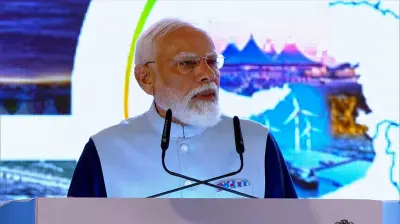

New Delhi: 2024 marked a watershed year for Indian conglomerates as industry titans ventured beyond their traditional domains, investing billions in groundbreaking sectors. This strategic diversification signals a new era in Indian business, with investments projected to reach $800 billion over the next decade.
The Aditya Birla Group made a bold entry into consumer markets, launching Birla Opus Paints with a Rs 10,000 crore investment and the premium jewelry brand Indriya backed by Rs 5,000 crore. The paint venture strategically aligns with India's infrastructure development push and housing initiatives. Chairman KM Birla positioned Birla Opus as a "scale start-up," combining start-up agility with conglomerate strength.
In the metals and technology sector, the Adani Group committed $1.2 billion to establish a copper smelter plant in Mundra, Gujarat. The facility's initial phase targets 0.5 million tonnes capacity, with plans for expansion to 1 million tonnes in Kutch. The group also partnered with Israel's Tower Semiconductor for a landmark $10 billion chip manufacturing plant, joining India's semiconductor mission.
Tata Group strengthened India's semiconductor ecosystem through collaboration with Taiwan's Powerchip Semiconductor Manufacturing Corporation. At the Vibrant Gujarat Summit, Chairman N Chandrasekaran announced a Rs 91,000 crore investment in a semiconductor fabrication facility in Dholera, extending the group's pioneering legacy into cutting-edge technology.
The green mobility sector saw significant movement as JSW Group invested $1.8 billion in JSW MG Motor, targeting production of 300,000 electric vehicles annually by 2026, scaling to 1 million by 2030. The group's partnership with Korea's POSCO Group further strengthens its position in steel, battery materials, and renewable energy.
Reliance Industries reinforced its commitment to sustainability with a Rs 75,000 crore investment in new energy initiatives. The group's ambitious Dhirubhai Ambani Green Energy Giga Manufacturing Complex in Jamnagar will host five giga factories across 5,000 acres, producing solar panels, batteries, and other green energy components. The conglomerate also diversified into financial services through a partnership with BlackRock and expanded its healthcare portfolio by acquiring Karkinos Healthcare.
According to S&P Global Ratings, 40% of the projected $800 billion investment will focus on emerging sectors including green hydrogen, clean energy, aviation, semiconductors, electric vehicles, and data centers. The report highlights that Vedanta, Tata, Adani, Reliance, and JSW groups will contribute approximately $350 billion to this transformation.
This unprecedented expansion represents more than just business growth; it marks India's corporate sector's strategic positioning for a sustainable, technology-driven future while maintaining leadership in traditional sectors. As these conglomerates venture into new territories, they're not just expanding their portfolios but actively shaping India's economic future.
The Morgan Stanley report provides additional context, noting Reliance Industries' strategic investments of $13 billion over five years, with significant allocations across new energy (14%), TMT (48%), retail (9%), and healthcare sectors, demonstrating the broad scope of this transformative wave in Indian business.